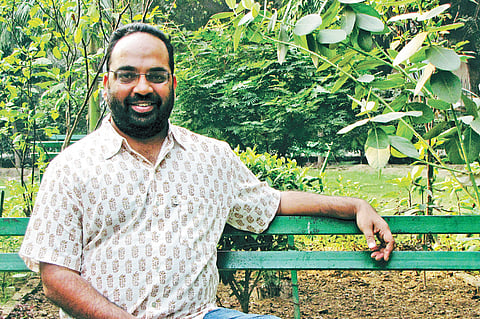

Amandeep Sandhu’s novel Roll of Honour gives an account of Punjab during the turbulent early 1980s. It narrates the times when the state was gripped with the Khalistan movement, the secessionist call for a separate Sikh country, as the author blends his personal experiences with the political situation.
The semi-autobiographical novel is set against the backdrop of militancy. The protagonist is a Sikh boy, Appu, studying in the 12th standard at a military school in the fictional town of Jassabad, Punjab. He wants to get his name listed in the school’s hall of fame, the “Roll of Honour”. Appu aspires to get into the National Defence Academy so that he can serve the nation.
In the meantime, the situation in Punjab turns vicious. The Indian Army at the behest of the government carries out Operation Blue Star to eliminate the Khalistani militants holed up in Golden Temple. Jarnail Singh Bhindranwale, the chief advocate of Khalistan, is killed along with his aides. These happenings affect the environment in the military school. The Khalistan movement splits the students along sectarian lines, i.e. Hindus and Sikhs. The supporters in the school deify Bhindranwale and want to tread the same path while the others want to be a part of India. Appu doesn’t seem interested to join the Indian Army any more after seeing the wrongdoings by the armed forces in Punjab.
The Sikhs viewed the army with distrust, as innocent ones who didn’t favour the idea of a Khalistan were also seen as militants by the security personnel. The turban defined who was militant and who was not.
Appu is confronted with questions of authority, identity, dignity, sexuality and friendship. In the military hostel, the seniors indulge in sodomy and bullying to dominate the juniors. In between, Appu dwells on his current life, as the novel makes a smooth transition.
The observations made by the author are striking. “Of all that transpires in the heart, hope is the meanest because it tints one’s understanding of reality.” Another one, “I realized with time that we are all potential chameleons changing our colours according to where we belong, who pays us, what keeps us safe.”
Sandhu questions authoritative power. It is about different identities an individual takes in different phases of life on the basis of colour, religion, community, language and nation. The author is blunt in describing the events and the experiences (and even the abuses). The characters of the novel are a bit confusing at times. One should read this novel to get an insight into what the youth went through during the troubled times in Punjab. I hope the author has found peace with himself and his past after writing the novel.